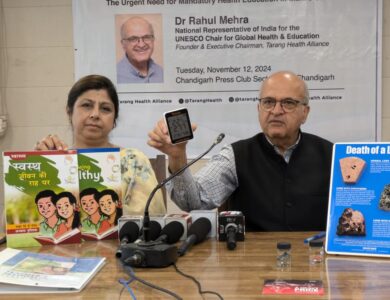Love Your Heart: A Practical Guide to Making Smart Choices for Cardiovascular Wellness

In the pursuit of a healthier lifestyle, prioritizing heart health is paramount. Our mission is to equip you with the knowledge and strategies needed to improve your cardiovascular well-being. Let’s delve into a comprehensive guide that goes beyond the basics and provides actionable insights for optimizing heart health.
Understanding the Basics
The Importance of Cardiovascular Health
Cardiovascular health is not merely a goal; it’s a lifestyle. A robust cardiovascular system ensures efficient blood circulation, supplying vital nutrients and oxygen to every cell in the body. It’s the foundation for overall well-being, influencing energy levels, cognitive function, and longevity.
Lifestyle Choices for Heart Health
1. Nutrient-Rich Diet
The fuel you provide your body plays a pivotal role in heart health. A diet rich in nutrient-dense foods, including fruits, vegetables, whole grains, and lean proteins, can significantly impact cardiovascular well-being. Incorporating omega-3 fatty acids from sources like fatty fish can further enhance heart health.
2. Regular Physical Activity
Physical activity is a non-negotiable factor in maintaining heart health. Aim for at least 150 minutes of moderate-intensity exercise per week, promoting optimal blood flow, and supporting a healthy heart.
3. Stress Management
Chronic stress can take a toll on your heart. Implementing stress-management techniques such as meditation, deep breathing exercises, or yoga can contribute to a healthier cardiovascular system.
Emerging Trends in Cardiovascular Wellness
1. Holistic Approaches
Embracing a holistic approach to heart health involves addressing mental, emotional, and physical well-being. Practices like mindfulness and holistic therapies can complement traditional methods, promoting a more comprehensive cardiovascular wellness strategy.
2. Innovations in Technology
Keep an eye on emerging technologies that aid in heart health monitoring. Wearable devices and apps can provide real-time data on heart rate, physical activity, and sleep patterns, empowering individuals to make informed decisions about their cardiovascular health.
Common Misconceptions
1. Fats: Friend or Foe?
Dispelling the myth that all fats are detrimental to heart health is crucial. While saturated fats should be limited, incorporating healthy fats like those found in avocados, nuts, and olive oil can contribute positively to cardiovascular well-being.
2. The Role of Supplements
Supplements are not a one-size-fits-all solution. While certain vitamins and minerals play a role in heart health, obtaining nutrients through a balanced diet is paramount. Consultation with a healthcare professional is advised before incorporating supplements into your routine.
Optimizing heart health requires a multifaceted approach, encompassing dietary choices, physical activity, stress management, and staying abreast of emerging trends. By incorporating these strategies into your lifestyle, you’re not only nurturing your cardiovascular system but also setting the foundation for a healthier, more fulfilling life.








